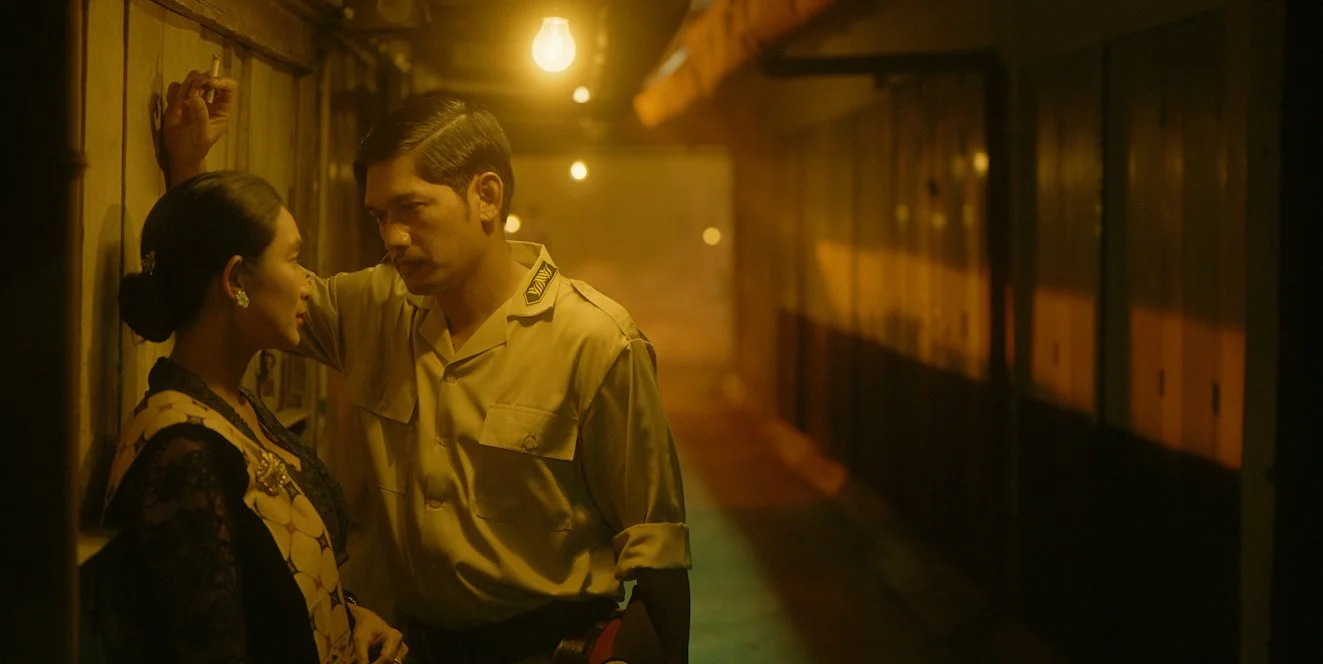Marriage Story
Kamila Andini’s extremely slow burning period melodrama is stately, refined and graceful. but man, is it slow.
Before, Now & Then
Director: Kamila Andini • Writer: Kamila Andini, Ahda Imran, based on the novel by Imran
Starring: Happy Salma, Laura Basuki, Arswendy Bening Swara, Ibnu Jamil, Rieke Diah Pitaloka, Chempa Puteri, Arawinda Kirana
Indonesia • 1hr 43mins
Opens Hong Kong September 15 • IIB
Grade: B-
Indonesian filmmaker Kamila Andini would like you to forget that she is Indonesian titan Garin Nugroho’s (Opera Jawa, Memories of My Body) daughter. She tries very hard to keep that nugget on the down low, and it’s easy to see why. Look what happened to Sofia Coppola when she made her first film (The Virgin Suicides). Obviously it was because daddy Francis Ford helped her out. Jesus Christ, Kathryn Bigelow had to win an Oscar before people stopped mentioning her ex-husband (James Cameron). They’re not even related by blood! So in an industry where resources are more modest and globally recognised filmmakers are fewer, Andini’s instincts to distance herself from her father are spot on.
But the apple clearly doesn’t fall far from the tree. There’s nothing wrong with taking after your papa if you go into the family business, and as she demonstrated in her 2011 breakout debut, The Mirror Never Lies, Andini has a deliberate, poetical touch that recalls Nugroho as much as it may be her own visual aesthetic. That said, Nugroho has never been quite so feminine, and who knows what he would have done with Before, Now & Then, essentially a story about one woman’s collapsing marriage and her unexpected friendship with her husband’s mistress, set around the time when vaguely leftist Sukarno was deposed by (CIA-approved) Suharto. But the background politics have little bearing on the story, even if you try and shoehorn in a metaphor about the cost of independence.
Before, Now & Then starts in the “before”, with Nana (co-producer Happy Salma) hiding in the woods. It’s the time of the purge of the country’s supposed communists and Nana is hiding from the men who killed her father and now want her hand in marriage (sure, guy). She’s with her infant son, his soldier father Raden (Ibnu Jamil) presumed dead somewhere. She escapes and the film flashes forward to the “now” part. Nana’s remarried to much older, wealthy industrial farm owner older Darga (Arswendy Bening Swara) and has four new children, some of whom live with friends and relatives in other parts of the country, largely due to a family curse. Okay. But the comfortable lifestyle to which she has become accustomed is disrupted by Darga’s new sidepiece, Ino (Laura Basuki), who works in the town market.
In most films about a woman being usurped by a younger version of herself the story would be about the rivalry between the two, and it’s a credit to Andini and co-writer Ahda Imran’s sense of character and emotion (and, yes, womanhood) that they find other currents just below the surface. Nana’s relationship to her own children is sketchy, with the exception of her daughter Dais, who she seems to “like” best. Ino has been boxed into her place in society as much as Nana has. It also helps that Salma delivers a tremendous, nuanced performance that telegraphs Nana’s fears, joys, insecurities, uncertainties and conflicted guilt with regards to where her life has gone. When Raden unexpectedly returns from the dead, it’s Ino that helps her navigate the “then” of the story.
That said, there’s slow and there’s glacial. Before, Now & Then doesn’t quite dip to that level, but Andini’s determined storytelling pushes the slip of a narrative’s luck. There’s nothing wrong with a slow, purposeful pace, and letting the mise-en-scène (oh, Andini is 100% film school even if it is by osmosis) do some of the heavy lifting, but mastery of the slow burn takes time and discipline, and Andini may not have total control of it just yet. Impeccably composed – by Batara Goempar – as sequences of Nana colouring Darga’s hair (in silent acknowledgement of their age difference), of the neighbourhood ladies not so passive-aggressively judging Nana’s every move as a hostess, and of Ino and Nana flirting with a deeper connection in the lush jungle are, there’s an inertness to the film, a somnolence, that beckons the mind to wander. Fans of Andini’s meditative, mesmerisng Mirror will be thrilled with her latest. It’s a more accomplished film, and in many way more accessible. But a ristretto could be in order. — DEK



